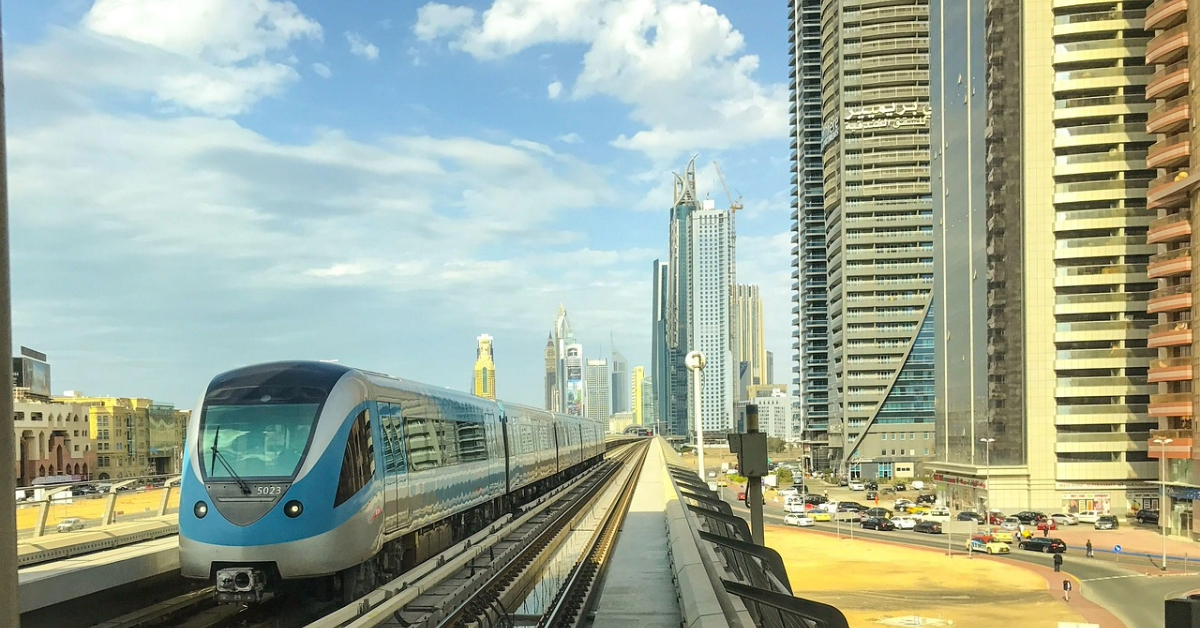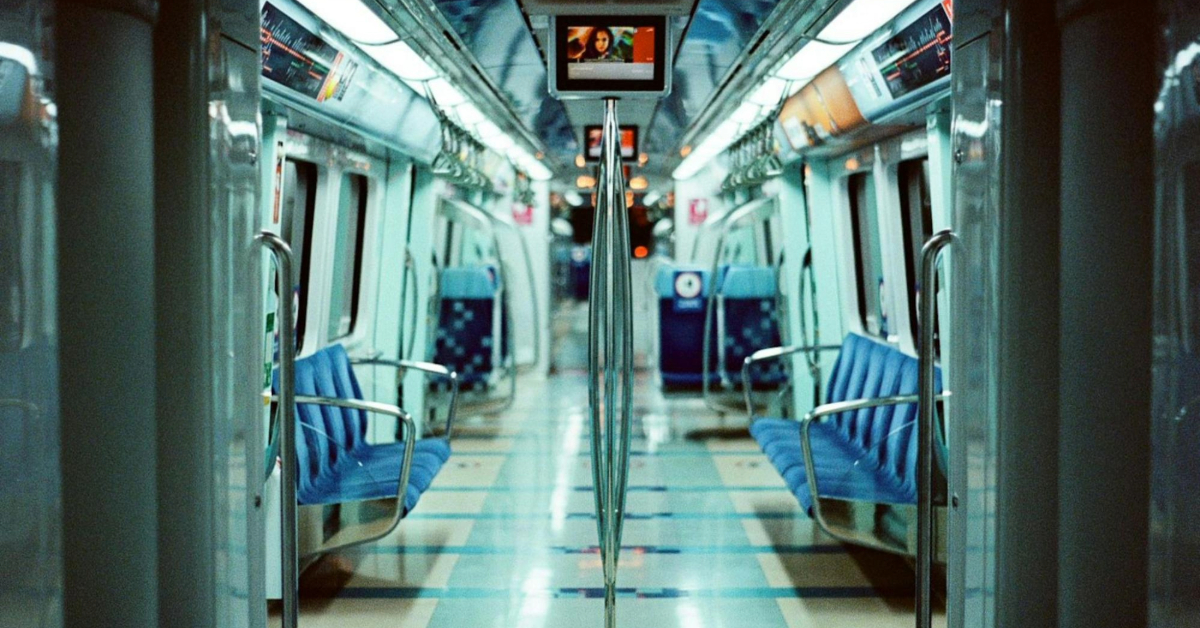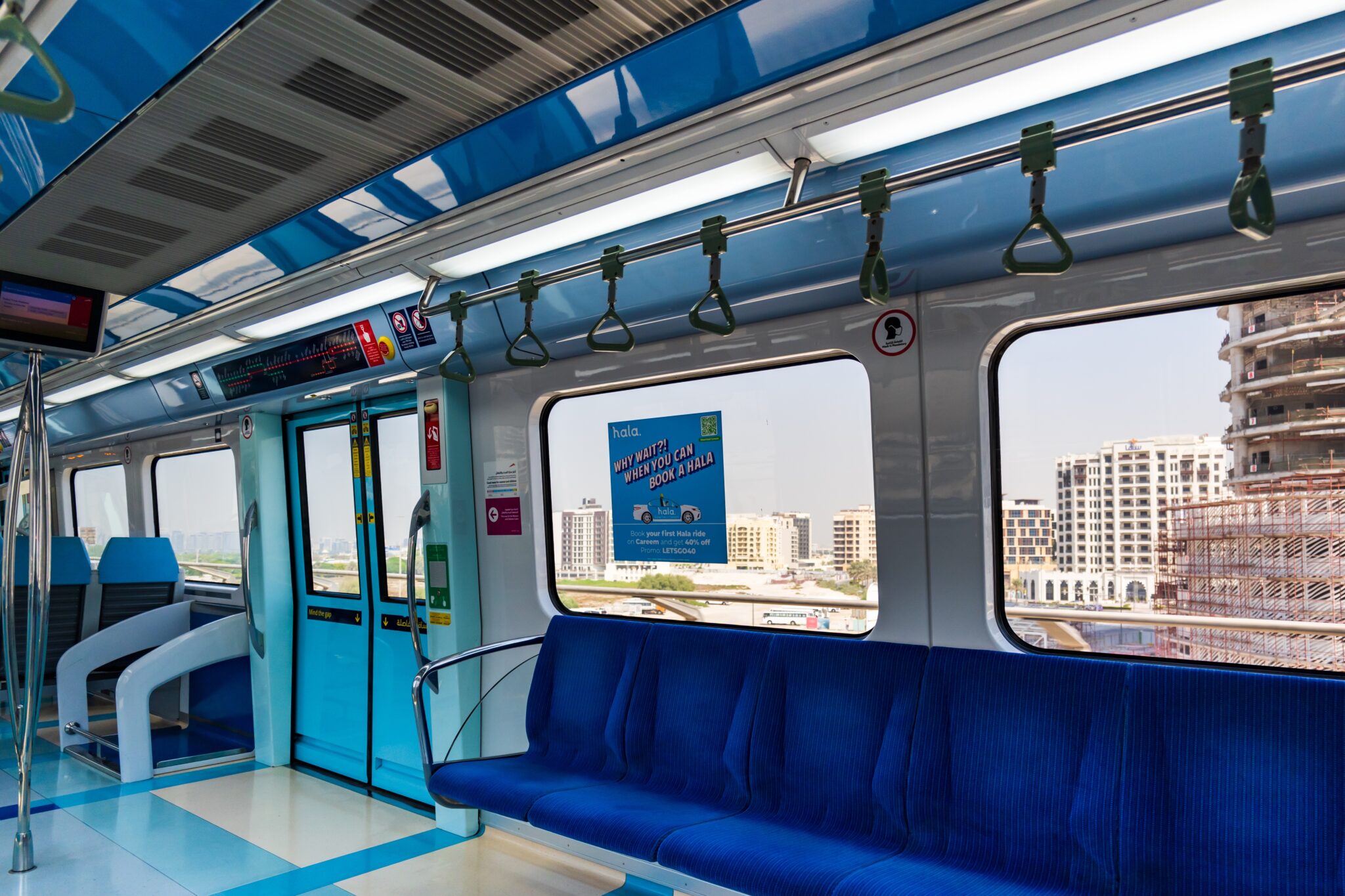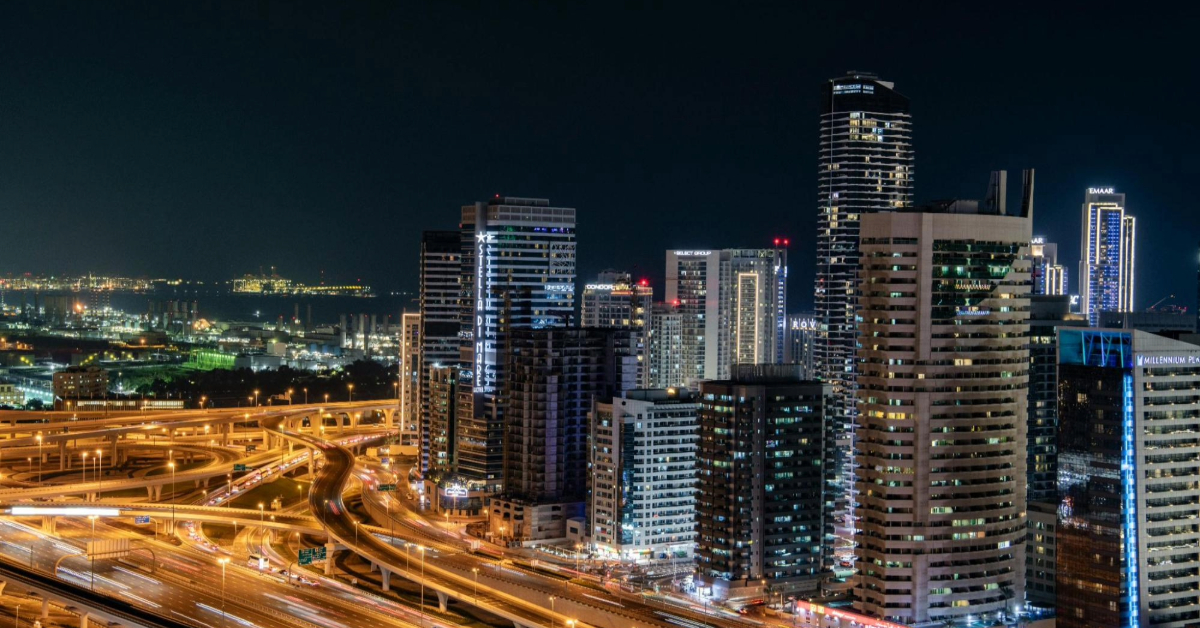Whether you’re a daily commuter, a resident, or a visitor exploring Dubai, Energy Metro Station is more than just a stop on the Red Line. It’s a hub connecting key industrial zones, residential communities, and popular leisure destinations. From seamless accessibility and modern facilities to nearby shopping, dining, and real estate opportunities, this station makes navigating southern Dubai effortless.
In this guide, we’ll explore everything you need to know about Energy Metro Station, including its history, amenities, connectivity, and the lifestyle benefits it brings to the surrounding neighbourhoods.
- Overview of Energy Metro Station
- Location and accessibility
- Operating hours and train schedules
- Routes and connections
- Public transport tips for commuters
- Nearby amenities and attractions
- Commuter experience and local lifestyle
- Community real estate profile
- RTA’s future plans and sustainability
- Key takeaways
- FAQs
Overview of Energy Metro Station

Energy Metro Station is one of the most strategically located stops on the Dubai Metro’s Red Line, linking Dubai Marina, Jebel Ali Port, and Expo City Dubai. Situated along Sheikh Zayed Road, just off the D57 Lehbab Road intersection, the station acts as a key gateway to the city’s industrial and southern residential districts.
Each day, thousands of workers, visitors, and residents pass through Energy Metro Station on their way to employment hubs like JAFZA (Jebel Ali Free Zone) and Dubai Industrial City, or home to communities such as Discovery Gardens, Al Furjan, and Jebel Ali Village.
The extension of the Red Line toward Expo 2020 Station has further elevated the station’s importance. It’s now a convenient midpoint between industrial Dubai and leisure destinations like Dubai Marina and Business Bay.
History and renaming
Energy Metro Station opened its doors on 30 September 2013 as “DUBAL”, a name inspired by the nearby Dubai Aluminium plant, one of the UAE’s largest industrial complexes.
In 2015, the name was changed to “Energy” to reflect Dubai’s forward-looking Clean Energy Strategy 2050. The rebranding symbolised a statement representing innovation, sustainability, and Dubai’s commitment to smart mobility.
The renaming reflected a shift in Dubai’s focus from heavy industry to innovation-driven growth and renewable energy.
Location and accessibility
Energy Metro Station is located in Zone 2 on the Red Line, conveniently situated between Danube and Ibn Battuta stations. Its location makes it a convenient hub for industrial workers, nearby residents, and visitors to Jebel Ali Port.
- Main access: Sheikh Zayed Road (southbound side)
- Entrances: Elevators, escalators, and ramps for accessibility
- Parking: Limited station parking, but available in adjacent industrial zones
The station is designed to be fully inclusive, featuring tactile flooring, wide ticket gates, lifts, and clear audio announcements for people of determination.
Facilities and station design

Energy Metro Station combines functionality with modern design, creating a comfortable and efficient commuting experience. Its open spaces, bright lighting, and intuitive layout make navigation easy.
Key highlights:
- Taxi stands, feeder buses, and ride-hailing pick-up points
- Ticket vending machines, Nol top-up counters and information kiosks
- Public restrooms and prayer rooms
- Air-conditioned waiting areas and seating
- Security and CCTV coverage
- Small retail kiosks and vending machines
- Energy-efficient lighting and solar-powered fixtures
- Seasonal RTA exhibits promoting sustainability
The architecture features the Metro’s signature golden curves. The combination of functionality and comfort makes it one of the most commuter-friendly stations on the network.
Operating hours and train schedules
Energy Station operates on the Red Line schedule:
| Day | First Train (Expo to Centrepoint) | Last Train (UAE Exchange to Energy) |
|---|---|---|
| Monday–Thursday | 05:04 a.m. | 10:56 p.m. |
| Friday | 05:04 a.m. | 11:52 p.m. |
| Saturday | 05:04 a.m. | 10:56 p.m. |
| Sunday | 08:03 a.m. | 10:51 p.m. |
During peak hours, trains run every 3–5 minutes; during off-peak times, they run every 7–10 minutes.
The exact operating hours can vary, and it’s advisable to check the latest schedules via the RTA’s official channels or the S’hail app.
Routes and connections
Energy Station is located on the Red Line route, which stretches from Expo 2020 Station to Centrepoint Station in Al Rashidiya.
- Previous Station: Danube (R41)
- Next Station: Ibn Battuta (R42)
Feeder buses and taxi connectivity
Feeder buses near the station include:
- F44: Ibn Battuta – Energy – Jebel Ali Gardens
- F51: Jebel Ali Industrial Area – Energy Station
Taxi ranks and pedestrian-friendly infrastructure ensure seamless integration with other modes of transport.
The station connects commuters to key destinations, including Dubai Marina (25 minutes), Business Bay (35 minutes), and Downtown Dubai (40 minutes).
Public transport tips for commuters
Whether you’re new to Dubai or a long-term resident, getting around via the Dubai Metro is one of the easiest ways to explore the city. Energy Metro Station is designed with convenience in mind, and here are some practical tips to make your journey smoother:
- Get a Nol Card: A Nol card is essential for all public transportation in Dubai, including the metro, tram, bus, and water taxi. Cards can be purchased or topped up directly at vending machines inside Energy Station.
- Use S’hail for planning: The RTA’s free S’hail app helps track train and bus timings in real time, ensuring you never miss a connection.
- Avoid peak times: These are between 7:00 a.m. and 9:00 a.m. and 5:00 p.m. and 7:00 p.m. Travelling slightly earlier or later ensures faster boarding and less congestion.
- Explore multi-line access: The Red Line connects easily with the Green Line at BurJuman and Union stations, allowing you to reach almost every central Dubai district without a car.
- Park and ride: If you’re coming from Abu Dhabi or Jebel Ali South, the nearby Ibn Battuta Station offers park-and-ride facilities, a convenient option for daily commuters.
With these simple habits, navigating the Dubai Metro becomes effortless and eco-friendly.
Nearby amenities and attractions

Energy Metro Station is situated in Jebel Ali, one of Dubai’s busiest industrial and logistics districts, yet it is also surrounded by leisure and lifestyle destinations.
Landmarks and shopping
- Festival Plaza Mall: Home to IKEA, ACE Hardware, and M&S.
Google Maps | +971 800 332
- Ibn Battuta Mall: Over 270 stores and VOX Cinemas.
Google Maps | +971 4 390 9999
- Jebel Ali Recreation Club: Family dining and fitness facilities.
Google Maps | +971 4 459 5100
- Jebel Ali Port & Free Zone (JAFZA): A global shipping hub.
Accommodation options
Whether you’re a professional working in Jebel Ali or a traveller exploring the Expo City area, accommodation near Energy Station is practical and affordable.
- Premier Inn Ibn Battuta Mall: Comfortable, budget-friendly, and directly linked to the mall via an indoor walkway. Guests can enjoy late checkout, a rooftop pool, and free shuttle buses to JBR Beach.
Google Maps | +971 4 278 2222
- JA Beach Hotel, Jebel Ali Resort: A luxury resort fronting the Arabian Gulf, about 10 minutes from the station. It features private beaches, golf, and multiple restaurants—ideal for weekend breaks.
Google Maps | +971 4 814 5555
- EasyHotel Jebel Ali: Clean, simple rooms at value rates with 24-hour reception and quick metro access for daily commuters.
Google Maps | +971 04 887 5757
Dining spots
The area offers various dining options, from casual eateries to international chains. Festival Plaza Mall features well-known cafés and restaurants, while Ibn Battuta Mall offers a range of global cuisines. You’ll also find small cafeterias and grocery stores serving the surrounding workforce within walking distance.
Whether you’re grabbing a quick coffee before your morning commute or dining out after work, these spots keep the Energy Metro area buzzing day and night.
- Festival Plaza Mall Restaurants: Enjoy breakfast at The Coffee Club or Paul Bakery, healthy lunch bowls at Common Grounds, and international dinners at Texas Roadhouse or Zafran Indian Bistro.
Google Maps
- Ibn Battuta Food Court: A popular evening spot with Shake Shack, Pizza Express, and P.F. Chang’s, along with local Emirati cafés for Arabic coffee and dates.
Google Maps
- Jebel Ali Recreation Club: A family-friendly venue combining fitness facilities with casual dining such as Ship’s Wheel Restaurant and Cucina Italian Kitchen.
Google Maps
Commuter experience and local lifestyle

Beyond its transport function, Energy Metro Station contributes directly to the quality of life in southern Dubai. For residents of nearby communities, the station represents shorter commutes, reliable schedules, and reduced traffic stress, which are key factors influencing where families choose to live.
Parents in Al Furjan or Discovery Gardens appreciate the station’s accessibility when travelling to business districts such as Dubai Internet City or Business Bay, with travel times averaging 35–40 minutes. The area’s connectivity also benefits school-goers: The Winchester School – Jebel Ali, Delhi Private School, and The Arbour School Al Furjan are all within a 10-minute drive.
For professionals working within JAFZA, the Metro eliminates the need for daily highway driving. Many companies now align shifts with train schedules, reducing car dependency and supporting Dubai’s sustainability goals.
Nearby malls provide everyday essentials, gyms, and dining outlets, turning the surrounding district into a self-sufficient lifestyle hub. The integration of Metro, bus, and pedestrian networks also supports Dubai’s 20-minute city concept, ensuring residents can reach schools, parks, or retail destinations within a short timeframe.
Community real estate profile

The neighbourhood around Energy Metro has transformed into a mixed-use urban hub. What was once a largely industrial area has now developed into growing residential clusters, thanks to the Red Line’s convenience.
According to Property Finder DataGuru, studio rents in Jebel Ali start at AED 35,000, while one-bedroom units average AED 55,000–60,000. Villas in Al Furjan rent for around AED 150,000–190,000, offering more space at competitive prices.
Properties within walking distance of metro stations consistently achieve 6–8% rental yields, per Property Finder Market Watch. Developers are responding with new residential and retail projects built around public transport, a core part of Dubai’s Transit-Oriented Development (TOD) strategy.
RTA’s future plans and sustainability
Dubai’s Roads and Transport Authority (RTA) continues to implement the Dubai 2040 Urban Master Plan, aiming to expand its metro network to 421 km by 2040. Energy Metro Station is expected to gain enhanced feeder routes connecting to the upcoming Blue Line, which will link Dubai Creek Harbour, Festival City, and Dubai South, bringing even greater passenger flow to the Jebel Ali corridor.
Environmental innovation is another focus. The RTA plans to retrofit select stations, including Energy, with solar-panel roofing, LED lighting, and automated climate control to minimise energy use. Upgraded Nol card technology will enable contactless payments across metro, tram, and bus services, reinforcing Dubai’s ambition for a seamless public-transport experience.
In parallel, the RTA’s “Smart Mobility 2030” programme aims to introduce AI-driven maintenance, real-time passenger analytics, and autonomous shuttles connecting metro stations to nearby business parks. For the Energy Station area, these enhancements will improve accessibility to JAFZA, Festival Plaza, and residential blocks without increasing traffic congestion.
Energy Station will also benefit from the Zero-Emission Public Transport Strategy 2050, which will bring electric-bus charging bays and greener travel options to Jebel Ali.
Key Takeaways
Energy Metro Station is more than a transit hub; it’s a lifeline connecting Dubai’s industrial south with its thriving residential and leisure communities. With fast access to Jebel Ali, Expo City, and Dubai Marina, it offers unmatched convenience for workers, families, and frequent travellers.
The surrounding neighbourhoods, including Al Furjan, Discovery Gardens, and Jebel Ali Village, continue to experience rising demand for affordable housing, driven by proximity to the metro and high rental yields. Travellers benefit from well-connected hotels and vibrant dining hubs, such as Festival Plaza and Ibn Battuta Mall.
With future Blue Line extensions, sustainability upgrades, and Dubai’s 2040 transport vision, Energy Metro Station is poised to remain a cornerstone of modern urban mobility and one of the city’s most liveable and investment-ready zones.
FAQs
On Sheikh Zayed Road near the D57 intersection, serving the Jebel Ali industrial area.
Typically 5:00 a.m. to 1:00 a.m. (Sat–Wed) and until 2:00 a.m. (Thu–Fri).
Yes, it includes elevators, ramps, tactile pathways, and wide fare gates.
Feeder routes F44 and F51 connect Energy Station with Ibn Battuta and Jebel Ali Gardens.
Yes, Premier Inn Ibn Battuta, JA Beach Hotel, and EasyHotel Jebel Ali.
The Winchester School – Jebel Ali and Delhi Private School are both nearby.
Yes. Tourists can buy Nol cards directly at vending machines inside the station.
Yes, explore Property Finder Jebel Ali listings for available homes and rentals.
Yes, free Wi-Fi is available across the concourse and platform areas.
Approximately 40–45 minutes via Red Line.